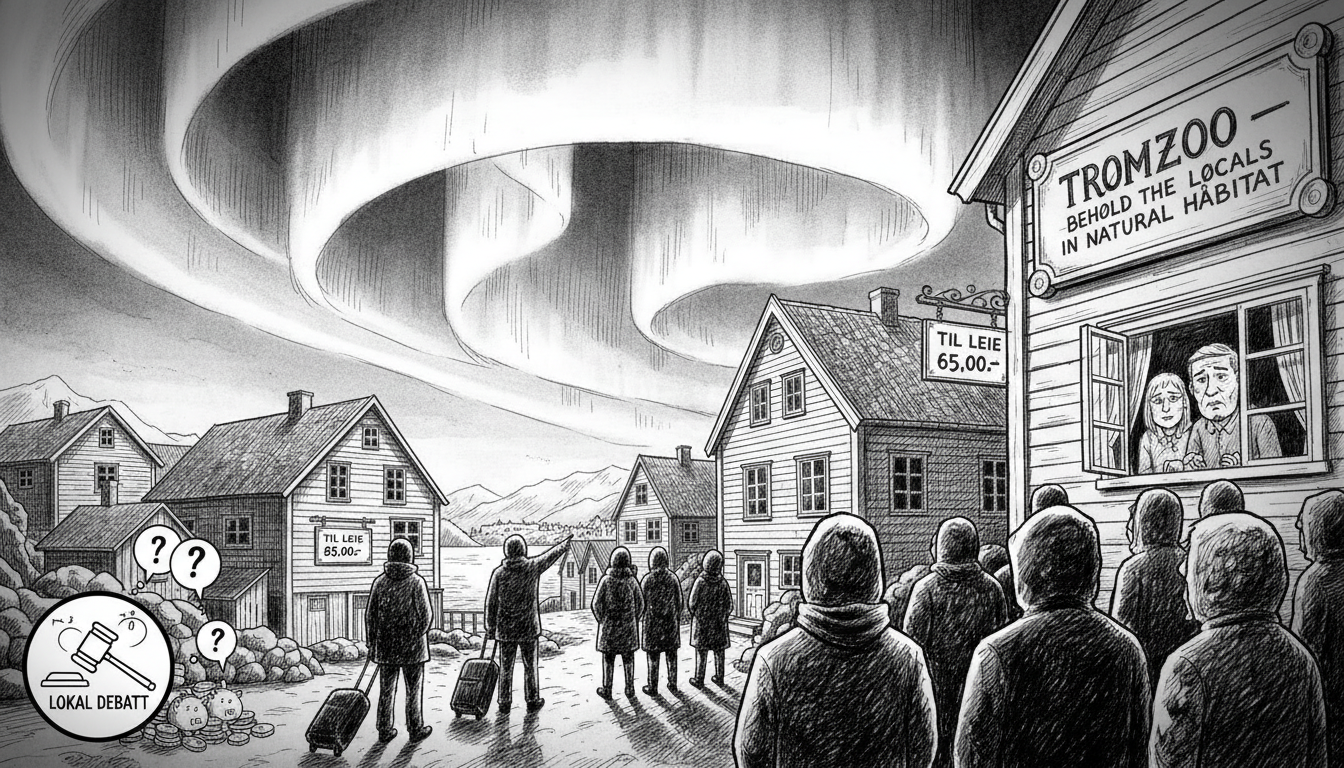Tourists are flocking to Northern Norway in unprecedented numbers, creating both economic opportunity and serious challenges for local residents. The Arctic city of Tromsø now faces a critical turning point as politicians debate how to manage the massive influx of visitors.
Chinese tourist Chen Ji expressed the wonder that draws thousands to the region. 'It's absolutely incredible. I've always dreamed of seeing the northern lights,' he said while visiting with his wife. Their experience represents the success story of Norwegian tourism marketing, but also highlights the growing strain on local infrastructure.
Northern lights tourism in Tromsø has more than doubled over the past six years. This winter, the city expects 60,000 monthly visitors arriving on direct flights alone, with additional tourists coming via domestic flights, cruise ships, buses, and private vehicles.
Local politicians now face mounting pressure to address the consequences. Barbara Vögele, group leader for the Green Party in Tromsø, stated plainly, 'There are too many tourists.' She criticized the municipality for allowing unlimited growth without restrictions.
The housing crisis represents the most immediate concern. Vögele emphasized that Airbnb and short-term rentals are pushing ordinary residents out of the housing market. 'Our young people, kindergarten staff, carpenters, and fishermen can no longer find housing in Tromsø. Then we have a problem and lose valuable labor,' she explained.
Financial data reveals the scale of the short-term rental market. In the first half of this year alone, Airbnb generated nearly 500 million Norwegian kroner in revenue—almost matching the entire previous year's total according to Northern Norway Knowledge Bank figures.
John Rainer Løvli of the Industry and Business Party acknowledges the economic benefits of tourism but recognizes the growing problems. 'Basically we support more tourism because it's an important industry for the city, but as it is now we unfortunately think it has become too much,' he said.
Residents report feeling like animals in a zoo as tourists become increasingly intrusive. 'We're almost seen as animals in a zoo,' Løvli noted. 'Many people complain that tourists climb on verandas and film and take pictures into houses. That's just not acceptable.'
Not all political leaders share the same level of concern. Markus Akselbo, group leader for the Conservative Party in Tromsø municipality, emphasized the positive aspects of tourism growth. 'We've had enormous growth in recent years. Tromsø has gained many direct flight routes, among other things,' he said.
Mayor Gunnar Wilhelmsen framed the tourism growth as a national success story that requires regional solutions. 'Norway has long invested in tourism. Now it has become a success, but the challenge becomes spreading tourists to the rest of the region,' he explained.
The political consensus acknowledges that regulation is necessary, though approaches differ. Most party leaders agree the tourism industry needs clearer management and stronger regulation as Tromsø approaches its capacity limits.
This autumn, the municipality launched an interactive map allowing residents to register their experiences with tourism. The responses will be analyzed, with a report on the city's carrying capacity expected early next year. Several hundred responses have already been submitted.
Business organizations share the concern about uncontrolled growth. Kristin Krohn Devold, leader of NHO Tourism, warned, 'Airbnb and short-term rentals are growing much faster than hotel growth, and it's happening right in the middle of people's residential areas.' She fears the market is spinning out of control and demands municipal regulation.
The fundamental question remains: where will ordinary people live if all available housing is consumed by unregulated tourism? As one resident put it, the situation risks creating 'Spanish conditions' where local communities are overwhelmed by tourist numbers.
The situation represents a classic growth paradox—economic success creating social challenges that threaten the very qualities that made the destination attractive in the first place. How Tromsø balances these competing interests will determine whether northern lights tourism remains sustainable or becomes a victim of its own popularity.

